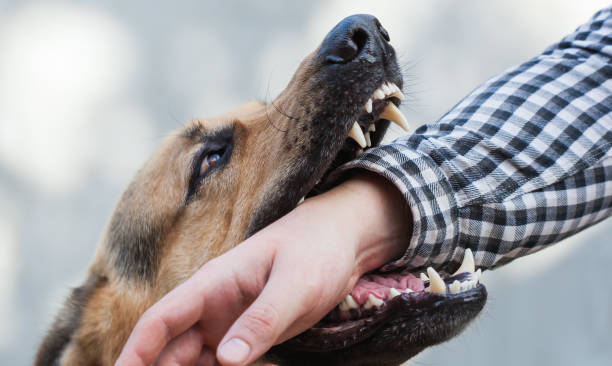DOH urges dog vaccination amid rise in rabies cases; stresses 'responsible pet ownership'
Department of Health (DOH) Undersecretary Eric Tayag emphasized on Friday, Jan. 26, the urgent need for dog vaccination in light of a human rabies case reported last week.

"Baka nakakalimutan nyo, responsible pet ownership e kailangan talaga nababakunahan ang mga aso, so love na love nyo 'yan pero ipakita nyo 'yung pagmamahal nyo na pinababakunahan nyo ang mga aso nyo (You might forget, but responsible pet ownership requires that dogs be vaccinated. Show your love by ensuring that your dogs are vaccinated)," Tayag told pet owners.
Meanwhile, responding to inquiries about the factors contributing to the increase in rabies cases in mid-December 2023, Tayag explained that the DOH faces challenges due to the extended incubation period of the virus.
"Pwedeng sa loob lamang ng dalawang buwan ay magkaroon ka na agad ng sintomas o kaya ang iba naman ay taon bago makita ang sintomas ng rabies. Kaya pag report ka ng rabies hindi natin masabi kasi sari-sari iyon. Mayroong nakagat ng aso limang buwan nang nakakaraan, ang obserbasyon lang namin ay hindi sila nabakunahan (Within just two months, one can develop symptoms, while for others, it may take years before rabies symptoms become apparent. So, when you report a case of rabies, it's challenging to determine, as situations vary. There was an incident of a dog bite five months ago, and our observation indicates that they were not vaccinated)," Tayag emphasized during an interview over TeleRadyo Serbisyo.
Highlighting the potential forgetfulness of many Filipinos regarding rabies vaccination, he added that "it's crucial to remember that without vaccination, “rabies is fatal.”
There have been reported cases of rabies-induced comas or vegetative states, emphasizing the severity of the disease, he added.
In the event of a dog bite, Tayag recommended washing the affected area with water and soap within five to 10 minutes, as 90 percent of the virus in the dog's saliva can be removed.
He also stressed the importance of prompt action and advised victims to seek immediate consultation at an animal bite center for vaccination.
"Observation is crucial for fourteen days, and immediate vaccination is necessary if bitten. Rabid dogs typically succumb within 14 days, making close monitoring essential during the observation period," Tayag explained in Filipino.
Moreover, regarding the vaccination process, he highlighted the necessity of completing the two-shot regimen, spanning over a month or more.
While the first shot is provided for free in certain animal bite centers due to potential vaccine shortages, subsequent shots may be free if supplies permit and demand is manageable.
Regarding this, the public is urged to prioritize “responsible pet ownership” by ensuring timely vaccination of dogs to curb the spread of rabies and protect both human and animal health.
Majority of the rabies cases are linked to dog bites
On the other hand, the DOH recorded a total of seven human rabies cases during morbidity week two, spanning Jan. 1 to 13.
Among these cases, the department highlighted that 71 percent, or five cases, were attributed to dog bites, while the remaining 29 percent, comprising two cases, were caused by cats.
Further analysis revealed that 57 percent of the animals involved, accounting for four cases, were domesticated, whereas 43 percent, totaling three cases, were stray animals.
Examining the vaccination history of the animals, the report indicated that the majority, 57 percent or four animals, were unvaccinated.
Only 14 percent, equivalent to one animal, had received vaccination, leaving the remaining 29 percent, or two animals, with an unknown vaccination history, the DOH said.
READ: https://mb.com.ph/2024/1/25/doh-confirms-7-human-rabies-cases-nationwide-records-a-63-rise